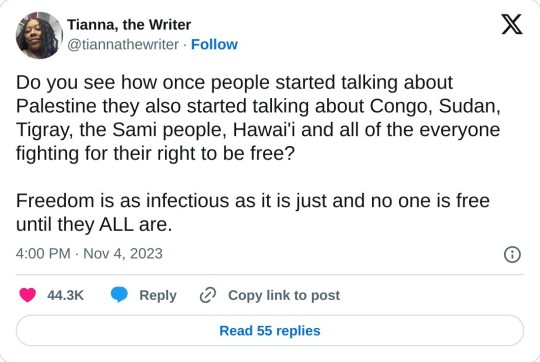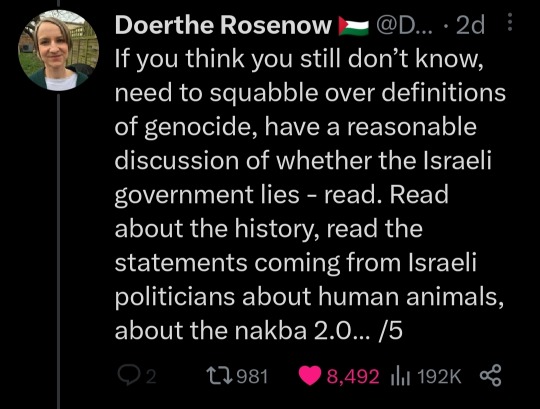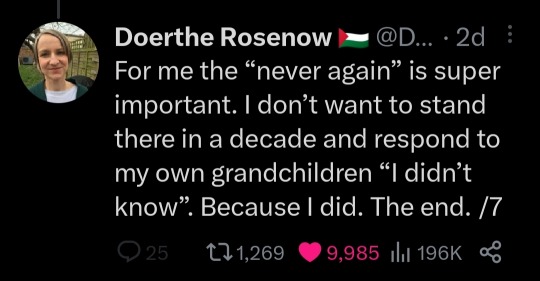#pakistans
Explore tagged Tumblr posts
Text









The Glassworker - Mano Animation Studios
Directed by - Usman Riaz
Pakistan’s First Ever 2D Hand Drawn Animated Film
Currently in Pakistani Theaters as of July 26 International release is coming soon <3
English Trailer || Urdu Trailer
#rei says stuff#the glassworker#pakistan#animated film#animated movies#anime#gifset#please support this movie when it comes out internationally!!!#animation#anime film
29K notes
·
View notes
Text
Pakistan’s Mohammad Asif predicts the four semi-finalists of Champions Trophy 2025
The Champions Trophy 2025, one of cricket’s most prestigious tournaments, is set to commence on February 19, with matches hosted across Pakistan and the UAE. This highly anticipated event will bring together the top eight teams in the world, competing in the iconic 50-over format. Known for its intense matchups and high-stakes scenarios, the Champions Trophy has always been a spectacle for…

View On WordPress
0 notes
Text
Discovering the Undiscovered: A Travel Guide to Pakistan's Hidden Gems
Pakistan, often overshadowed by its more famous neighbours, is a treasure trove of hidden gems waiting to be discovered. With its diverse landscapes, rich history, and vibrant cultures, this South Asian country offers an array of experiences beyond the usual tourist trail. From serene mountain valleys to ancient archaeological sites and bustling bazaars, Pakistan’s undiscovered locales invite…
0 notes
Text

People & countries mentioned in the thread:
DR Congo - M23, Cobalt
Darfur, Sudan - International Criminal Court, CNN, BBC (Overview); Twitter Explanation on Sudan
Tigray - Human Rights Watch (Ethnic Cleansing Report)
the Sámi people - IWGIA, Euronews
Hawai'i - IWGIA
Syria - Amnesty International
Kashmir- Amnesty Summary (PDF), Wikipedia (Jammu and Kashmir), Human Rights Watch (2022)
Iran - Human Rights Watch, Morality Police (Mahsa/Jina Amini - Al Jazeera, Wikipedia)
Uyghurs - Uyghur Human Rights Project (UHRP) Q&A, Wikipedia, Al Jazeera, UN Report
Tibetans - SaveTibet.org, United Nations
Yazidi people - Wikipedia, United Nations
West Papua - Free West Papua, Genocide Watch
Yemen - Human Rights Watch (Saudi border guards kill migrants), Carrd
Sri Lanka (Tamils) - Amnesty International, Human Rights Watch
Afghans in Pakistan - Al Jazeera, NPR
Ongoing Edits: more from the notes / me
Armenians in Nagorno-Karabakh/Azerbaijan (Artsakh) - Global Conflict Tracker ("Nagorno-Karabakh Conflict"), Council on Foreign Relations, Human Rights Watch (Azerbaijan overview), Armenian Food Bank
Baháʼís in Iran - Bahá'í International Community, Amnesty, Wikipedia, Minority Rights Group International
Kafala System in the Middle East - Council on Foreign Relations, Migrant Rights
Rohingya - Human Rights Watch, UNHCR, Al Jazeera, UNICEF
Montagnards (Vietnam Highlands) - World Without Genocide, Montagnard Human Rights Organization (MHRO), VOA News
Ukraine - Human Rights Watch (April 2022), Support Ukraine Now (SUN), Ukraine Website, Schools & Education (HRW), Dnieper River advancement (Nov. 15, 2023 - Ap News)
Reblogs with Links / From Others
Indigenous Ppl of Canada, Cambodia, Mexico, Colombia
Libya
Armenia Reblog 1, Armenia Reblog 2
Armenia, Ukraine, Central African Republic, Indigenous Americans, Black ppl (US)
Rohingya (Myanmar)
More Hawai'i Links from @sageisnazty - Ka Lahui Hawaii, Nation of Hawai'i on Soverignty, Rejected Apology Resolution
From @rodeodeparis: Assyrian Policy Institute, Free Yezidi
From @is-this-a-cool-url: North American Manipur Tribal Association (NAMTA)
From @dougielombax & compiled by @azhdakha: Assyrians & Yazidis
West Sahara conflict
Last Updated: Feb. 19th, 2024 (If I missed smth before this, feel free to @ me to add it)
#resources#important#congo#sudan#tigray#sámi#hawai'i#syria#kashmir#iran#uyghurs#china#tibetans#yazidi#west papua#yemen#sri lanka#afghans in pakistan#pakistan#human rights#palestine#twitter#lmk if there's a better reource or I linked smth wrong. I am very tired#my posts#genocide#social justice#nagorno karabakh#Bahá'í#kafala system#qatar
46K notes
·
View notes
Text
PAK vs BAN: All-rounder Salman relishes prospect of serving as Pakistan’s sole spinner against Bangladesh
All-rounder Salman Ali Agha says he’s excited by the prospect of serving as Pakistan’s sole spin option in the upcoming first test against Bangladesh. Pakistan’s only specialist leg-spinner Abrar Ahmed was left out from the squad as Pakistan aims to prepare a green-top wicket to help its fast bowlers in the first of two test matches starting at Rawalpindi on Wednesday. “I am excited to take up…
0 notes
Text

YEAA PAKISTANI MIKU 🇵🇰🇵🇰⁉️ by fruberry01
10K notes
·
View notes
Text
#Mohammad Amir Makes Comeback In Pakistan's International Squad After 4 Years, Imad Wasim Picked For T20 Series vs New Zealand | Cricket News #TATAIPL #IPL24
#IPL24 # The Pakistan cricket team has sent shockwaves through the cricketing world with the surprise return of two of their most celebrated stars – Mohammad Amir and Imad Wasim. After brief spells of retirement, the dynamic duo have answered the call to don the green jersey once again, poised to spearhead Pakistan’s charge in the pivotal T20I series against trans-Tasman rivals New Zealand. _…

View On WordPress
#Amir#Comeback#Cricket#Imad#International#IPL24#Mohammad#News#Pakistans#Picked#Series#squad#T20#TATAIPL#Wasim#years#Zealand
0 notes
Text
"With Donald Trump set to take office after a fear-mongering campaign that reignited concerns about his desire to become a dictator, a reasonable question comes up: Can nonviolent struggle defeat a tyrant?
There are many great resources that answer this question, but the one that’s been on my mind lately is the Global Nonviolent Action Database, or GNAD, built by the Peace Studies department at Swarthmore College. Freely accessible to the public, this database — which launched under my direction in 2011 — contains over 1,400 cases of nonviolent struggle from over a hundred countries, with more cases continually being added by student researchers.
At quick glance, the database details at least 40 cases of dictators who were overthrown by the use of nonviolent struggle, dating back to 1920. These cases — which include some of the largest nations in the world, spanning Europe, Asia, Africa and Latin America — contradict the widespread assumption that a dictator can only be overcome by violence. What’s more, in each of these cases, the dictator had the desire to stay, and possessed violent means for defense. Ultimately, though, they just couldn’t overcome the power of mass nonviolent struggle.
In a number of countries, the dictator had been embedded for years at the time they were pushed out. Egypt’s Hosni Mubarak, for example, had ruled for over 29 years. In the 1990s, citizens usually whispered his name for fear of reprisal. Mubarak legalized a “state of emergency,” which meant censorship, expanded police powers and limits on the news media. Later, he “loosened” his rule, putting only 10 times as many police as the number of protesters at each demonstration.
The GNAD case study describes how Egyptians grew their democracy movement despite repression, and finally won in 2011. However, gaining a measure of freedom doesn’t guarantee keeping it. As Egypt has shown in the years since, continued vigilance is needed, as is pro-active campaigning to deepen the degree of freedom won.
Some countries repeated the feat of nonviolently deposing a ruler: In Chile, the people nonviolently threw out a dictator in 1931 and then deposed a new dictator in 1988. South Koreans also did it twice, once in 1960 and again in 1987. (They also just stopped their current president from seizing dictatorial powers, but that’s not yet in the database.)
In each case people had to act without knowing what the reprisals would be...
It’s striking that in many of the cases I looked at, the movement avoided merely symbolic marches and rallies and instead focused on tactics that impose a cost on the regime. As Donald Trump wrestles to bring the armed forces under his control, for example, I can imagine picketing army recruiting offices with signs, “Don’t join a dictator’s army.”
Another important takeaway: Occasional actions that simply protest a particular policy or egregious action aren’t enough. They may relieve an individual’s conscience for a moment, but, ultimately, episodic actions, even large ones, don’t assert enough power. Over and over, the Global Nonviolent Action Database shows that positive results come from a series of escalating, connected actions called a campaign...
-via Waging Nonviolence, January 8, 2025. Article continues below.
East Germany’s peaceful revolution
When East Germans began their revolt against the German Democratic Republic in 1988, they knew that their dictatorship of 43 years was backed by the Soviet Union, which might stage a deadly invasion. They nevertheless acted for freedom, which they gained and kept.
Researcher Hanna King tells us that East Germans began their successful campaign in January 1988 by taking a traditional annual memorial march and turning it into a full-scale demonstration for human rights and democracy. They followed up by taking advantage of a weekly prayer for peace at a church in Leipzig to organize rallies and protests. Lutheran pastors helped protect the organizers from retaliation and groups in other cities began to stage their own “Monday night demonstrations.”
The few hundred initial protesters quickly became 70,000, then 120,000, then 320,000, all participating in the weekly demonstrations. Organizers published a pamphlet outlining their vision for a unified German democracy and turned it into a petition. Prisoners of conscience began hunger strikes in solidarity.
By November 1988, a million people gathered in East Berlin, chanting, singing and waving banners calling for the dictatorship’s end. The government, hoping to ease the pressure, announced the opening of the border to West Germany. Citizens took sledgehammers to the hated Berlin Wall and broke it down. Political officials resigned to protest the continued rigidity of the ruling party and the party itself disintegrated. By March 1990 — a bit over two years after the campaign was launched — the first multi-party, democratic elections were held.
Students lead the way in Pakistan
In Pakistan, it was university students (rather than religious clerics) who launched the 1968-69 uprising that forced Ayub Khan out of office after his decade as a dictator. Case researcher Aileen Eisenberg tells us that the campaign later required multiple sectors of society to join together to achieve critical mass, especially workers.
It was the students, though, who took the initiative — and the initial risks. In 1968, they declared that the government’s declaration of a “decade of development” was a fraud, protesting nonviolently in major cities. They sang and marched to their own song called “The Decade of Sadness.”
Police opened fire on one of the demonstrations, killing several students. In reaction the movement expanded, in numbers and demands. Boycotts grew, with masses of people refusing to pay the bus and railway fares on the government-run transportation system. Industrial workers joined the movement and practiced encirclement of factories and mills. An escalation of government repression followed, including more killings.
As the campaign expanded from urban to rural parts of Pakistan, the movement’s songs and political theater thrived. Khan responded with more violence, which intensified the determination among a critical mass of Pakistanis that it was time for him to go.
After months of growing direct action met by repressive violence, the army decided its own reputation was being degraded by their orders from the president, and they demanded his resignation. He complied and an election was scheduled for 1970 — the first since Pakistan’s independence in 1947.
Why use nonviolent struggle?
The campaigns in East Germany and Pakistan are typical of all 40 cases in their lack of a pacifist ideology, although some individuals active in the movements had that foundation. What the cases do seem to have in common is that the organizers saw the strategic value of nonviolent action, since they were up against an opponent likely to use violent repression. Their commitment to nonviolence would then rally the masses to their side.
That encourages me. There’s hardly time in the U.S. during Trump’s regime to convert enough people to an ideological commitment to nonviolence, but there is time to persuade people of the strategic value of a nonviolent discipline.
It’s striking that in many of the cases I looked at, the movement avoided merely symbolic marches and rallies and instead focused on tactics that impose a cost on the regime. As Donald Trump wrestles to bring the armed forces under his control, for example, I can imagine picketing army recruiting offices with signs, “Don’t join a dictator’s army.”
Another important takeaway: Occasional actions that simply protest a particular policy or egregious action aren’t enough. They may relieve an individual’s conscience for a moment, but, ultimately, episodic actions, even large ones, don’t assert enough power. Over and over, the Global Nonviolent Action Database shows that positive results come from a series of escalating, connected actions called a campaign — the importance of which is also outlined in my book “How We Win.”
As research seminar students at Swarthmore continue to wade through history finding new cases, they are digging up details on struggles that go beyond democracy. The 1,400 already-published cases include campaigns for furthering environmental justice, racial and economic justice, and more. They are a resource for tactical ideas and strategy considerations, encouraging us to remember that even long-established dictators have been stopped by the power of nonviolent campaigns.
-via Waging Nonviolence, January 8, 2025.
#Chile#Egypt#Germany#Pakistan#Protests#United States#us politics#fuck trump#authoritarianism#revolution#nonviolence#nonviolent resistance#protest#america#protests#democracy#elections#trump administration#good news#hope#hopepunk#hope posting
3K notes
·
View notes
Text
America has now bombed and conducted illegal wars in:
- Iraq
- Syria
- Libya
- Somalia
- Pakistan
- Afghanistan
- Palestine
- Yemen
But Muslims are the terrorists?
#free palestine#palestine#gaza#palestine will be free#yemen#free yemen#iraq#libya#somalia#pakistan#america#israel is a terrorist state#israel terrorist#israel massacre#ethnic cleansing#end the occupation#occupied palestine#occupation#world history#gaza genocide#ceasfire now#ceasefire now#new year 2024#muslim#islam
8K notes
·
View notes
Text







Via @DoertheRosenow on Twitter
#During the genocide of 1971 (biggest genocide since the Holocaust) Pakistan killed abt 3 million Bangladeshis#guess which side America helped#gaza#free palestine#palestine
12K notes
·
View notes
Text
Pakistan’s thrice-elected, self-exiled former Prime Minister Nawaz Sharif returns home ahead of vote
View On WordPress
0 notes
Text

Beautiful image of Pakistani Shiite Muslims burning mock flags of "israel" and the United States, 2008, in Karachi, Pakistan.
2K notes
·
View notes
Text

Eeman Masood (b.1998) - Rejoicing. 2023. Gouache, gold ink and 24 karat gold leaf on arches paper.
1K notes
·
View notes
Text
Pakistan's president dissolves parliament: statement
HESPRESS English – Morocco News International with AFPWednesday 9 August 2023 – 22:01 Pakistan’s government was dissolved on Wednesday, the country’s president announced, ahead of elections that the government has warned could be delayed until next year. “The president dissolved the national assembly on the advice of the prime minister under article 58-1 of the constitution,” a statement from…

View On WordPress
0 notes
